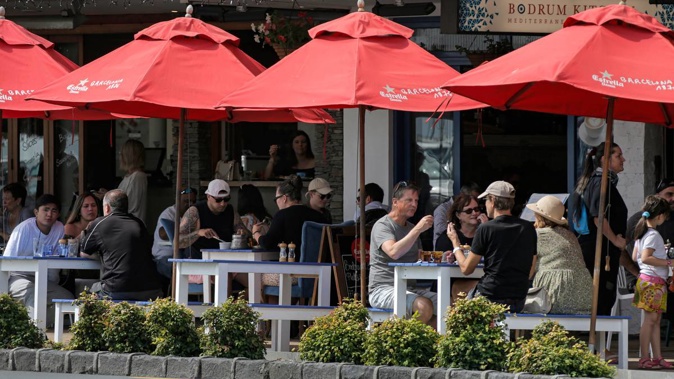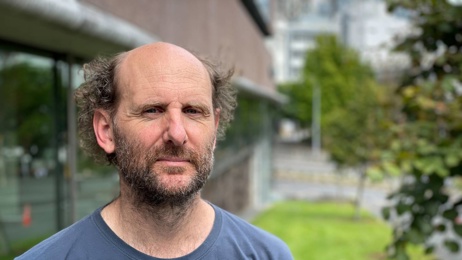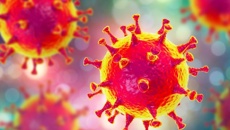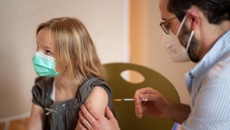
There are 11 Covid-related deaths reported today, taking this country's total virus-related death toll to 500 since the pandemic began.
There are 7592 new community cases - an increase of more than 1000 on yesterday's numbers.
There are 640 people in hospital, including 23 in intensive care, the Ministry of Health said in today's update.
The deaths reported today include 10 people who have died in the past three days and one person who died 12 days ago.
These deaths take the total number of publicly reported deaths with Covid to 500.
Of the people whose deaths were reported today, three were from the Auckland region, three from Waikato, one from Hawke's Bay, one from Taranaki, one from the Wellington region, and two from Canterbury.
Two were aged in their 60s, three in their 70s, three in their 80s, and three were over 90.
"This is a very sad time for whānau and friends and our thoughts are with them," the ministry said in a statement.
The 640 people in hospital are in Northland (24), Waitematā (102), Counties Manukau (111), Auckland (102), Waikato (63), Bay of Plenty (35), Lakes (six), Tairāwhiti (three), Hawke's Bay (19), Taranaki (11), Whanganui (11), MidCentral (23), Wairarapa (three), Hutt Valley (16), Capital and Coast (16), Nelson Marlborough (13), Canterbury (46), South Canterbury (six), West Coast (one) and Southern (29).
There are 71,167 active community cases of Covid-19. Active cases were identified in the past seven days and have not yet recovered.
To date, 96.4 per cent of eligible people aged 12+ have had one vaccine dose, 95.2 per cent have had two and 72.7 per cent of those eligible have been boosted.
Today's community cases are in Northland (312), Auckland (1,378), Waikato (667), Bay of Plenty (309), Lakes (150), Hawke's Bay (284), MidCentral (350), Whanganui (138), Taranaki (248), Tairāwhiti (69), Wairarapa (89), Capital and Coast (549), Hutt Valley (332), Nelson Marlborough (270), Canterbury (1,286), South Canterbury (153), Southern (937) and the West Coast (68).
The location of three cases is unknown.
Today's seven-day rolling average is 10,169 while last Monday it was 13,218.
The ministry said the number of cases was expected to continue to fluctuate day to day and was usually lower over the weekend with less reporting of results and testing.
"While overall the number of community cases is trending downwards, please continue to follow public health advice to stay at home, away from school or work if you are feeling unwell and, when not at home, use a mask in indoor settings to protect yourself and others.
"Vaccination remains our best defence against Covid-19 and a booster, in addition to first and second doses of the Covid-19 vaccine, will give you greater immunity against Omicron and severe illness.
"There is a much lower risk of being hospitalised if you are up to date with your vaccinations, which, for Omicron, includes a third or booster dose if eligible."
Meanwhile, 39 Covid cases have been detected at the border.
The vaccination status of the cases in hospital in the Northern region is:
- Unvaccinated or not eligible: 34 cases / 10 per cent
- Partially immunised <7 days from second dose or have only received one dose: Eight cases / 2 per cent
- Double vaccinated at least seven days before being reported as a case: 54 cases / 16 per cent
- Received booster at least seven days before being reported as a case: 72 cases / 22 per cent
- Unknown: 165 cases / 50 per cent
Cabinet is also reviewing its traffic light settings later this week and will make a call about whether the country is ready to move to the orange traffic light as people head off for the long weekend. Any move could also coincide with the impending April school holidays.
Yesterday there were 6718 new cases of Covid-19 reported - its lowest reported Covid-19 daily tally since late February.
There were also 12 new Covid-related deaths bringing the total deaths to 489
Otago University epidemiologist Professor Michael Baker said reported positive test results showed that at least 15 per cent of the country has now been infected with Omicron.
"If you add up all the positive tests since Omicron started spreading we just hit the 750,000 mark, so three-quarters of a million."
With testing rates dropping over the weekend, Baker said the week's peak is often recorded on a Tuesday.
"It's a pretty constant pattern that Sunday is the lowest point and Tuesday is typically the high point of the week."
Dr Dion O'Neale, of Covid-19 Modelling Aotearoa, agreed that numbers will rise in the coming days, but not reach as high as the previous week.
"The general trend is declining cases, with a weekly pattern over top of that," he said.
Sunday's seven-day rolling average of community cases is 10,543 compared to 13,543 last Sunday.
Auckland had the highest number of new community cases at 1202, followed by Canterbury with 1170 new cases.
With the 12 newly reported deaths yesterday, New Zealand's Covid-related death toll now stands at 489.
The deaths reported include people who have died over the past 17 days. Eight of those who died were from Auckland, two from MidCentral, one from the Lakes DHB area and one from Hawke's Bay.
One was in their 40s, one in their 50s, three in their 60s, two in their 70s, two in their 80s and three people over 90. Six were women and six were men. The seven-day rolling average of reported deaths is 13.
Last week Prime Minister Jacinda Ardern said it was too early to move the country to orange while there was still pressure on the hospital system, but that things may have improved by April 14 when Cabinet would review the settings again.
It was still possible in the future for some regions to change traffic light settings. So for example, one region might go to orange while others were in red, she said.
"I want New Zealand to be living as normal a life as possible," Ardern said when asked about the traffic light system. "But we want to move carefully."
Ardern said the Government was mindful of the impact the red traffic light setting had on the hospitality sector.
"It is incredibly difficult on sectors that are particularly reliant on indoor events. Regardless of what setting we're in now, outdoor events can continue."
Take your Radio, Podcasts and Music with you









